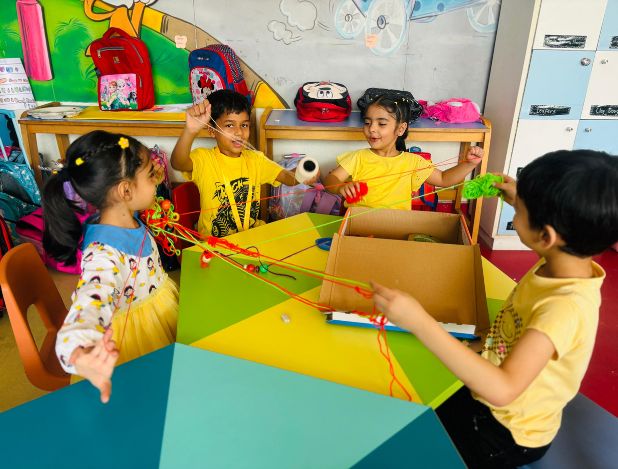The Future Starts Here: Welcome to Our New Pre-Nursery Program
- 12 August 2024

“The future belongs to those who prepare for it today,” said Malcolm X.
Early education is key to laying the groundwork for lifelong learning and development. The adage “the early bird catches the worm” rings true, as starting education early offers numerous benefits that echo throughout a child’s life.
Cognitive Development: Building a Strong Foundation
Early education significantly impacts cognitive development. Research by the National Institute for Early Education Research (NIEER) shows that children in high-quality early education programs demonstrate better cognitive skills and higher academic achievement. Preschool attendees see a 25% improvement in literacy and numeracy skills, compared to those who do not attend. These formative years are crucial for developing problem-solving abilities, language skills, and critical thinking, all of which set the stage for future academic success.
Social and Emotional Growth: Learning to Interact
Beyond academics, early education nurtures social and emotional development. Children learn to interact with peers, collaborate, and develop essential social skills. These experiences foster self-confidence, empathy, and resilience—traits vital for personal and professional success. According to the Journal of Applied Developmental Psychology, children who attend early education programs exhibit a 30% improvement in social skills, better cooperation, and fewer behavioral issues, compared to those without early education.
Enhanced Language Skills: The Power of Words
Language development is another critical benefit. The American Academy of Pediatrics emphasizes that children exposed to early literacy activities, like reading aloud, develop larger vocabularies and superior communication skills. A University of Chicago study found that early literacy program participants could have up to a 40% larger vocabulary by age 5 compared to their peers.
School Readiness: Easing the Transition
Early education also eases the transition to formal schooling. Children accustomed to early education programs are better prepared for classroom environments, demonstrating essential skills like following instructions, working independently, and maintaining focus. These abilities contribute to a smoother adjustment to school life.
Long-Term Economic Benefits: Investing in the Future
Investing in early education has long-term economic advantages. Studies indicate that children who receive quality early education are more likely to graduate high school, pursue higher education, and earn higher wages. This leads to a more skilled and educated workforce, benefiting society at large.
Support for Families: A Community Effort
Early education programs also support families by offering resources such as parenting workshops and health screenings. Harvard’s Center on the Developing Child found these programs improve parental engagement and practices by 20%, fostering stronger, more informed communities.
In response to these benefits, we are excited to introduce our new Pre-Nursery program, designed with the latest research and best practices. Our program offers a nurturing environment that promotes cognitive, social, and emotional growth, setting children on the path to lifelong success.
Investing in early education is truly investing in a brighter future for all. By preparing children today, we create opportunities for a better tomorrow.